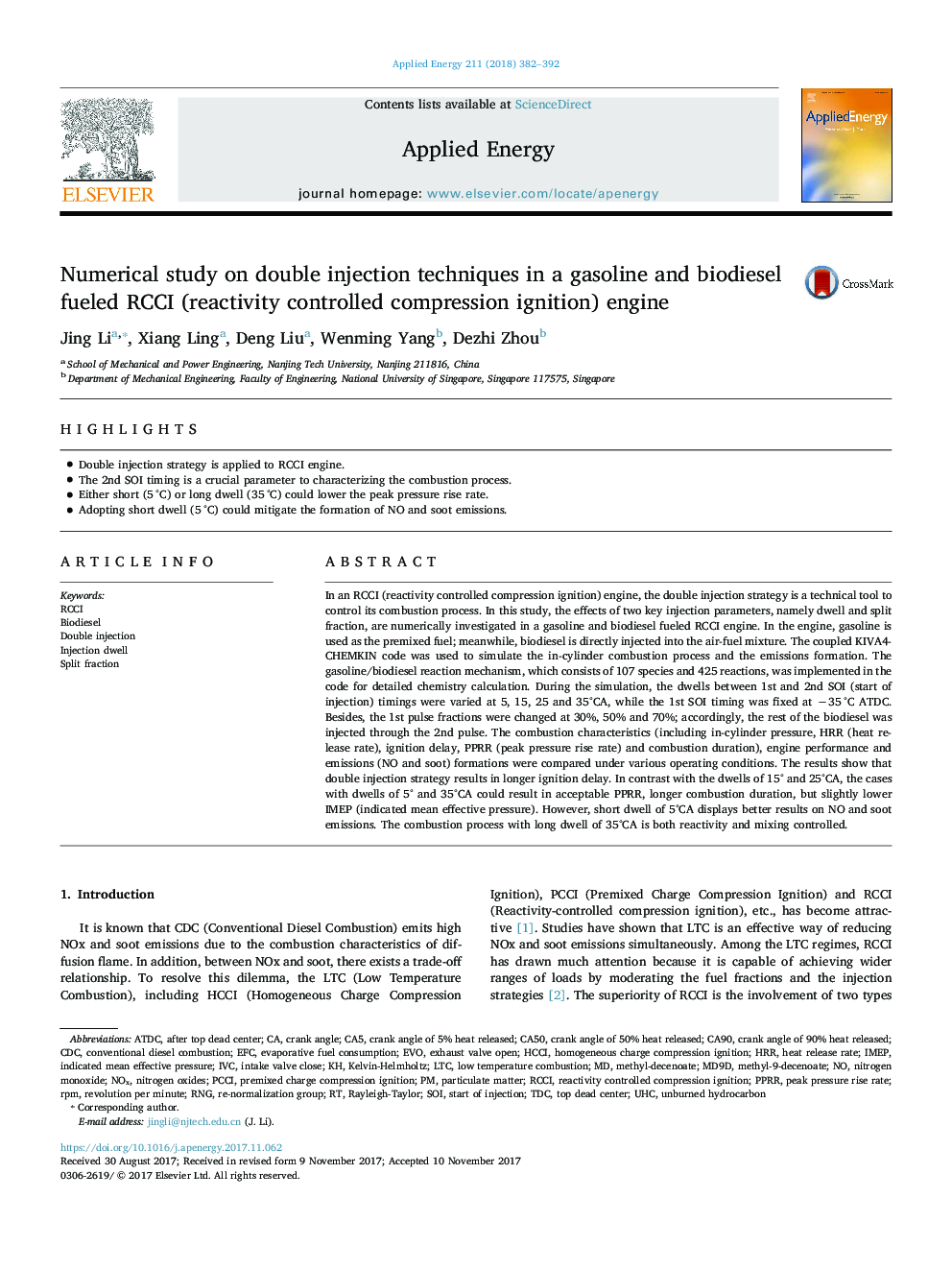| Article ID | Journal | Published Year | Pages | File Type |
|---|---|---|---|---|
| 6681226 | Applied Energy | 2018 | 11 Pages |
Abstract
In an RCCI (reactivity controlled compression ignition) engine, the double injection strategy is a technical tool to control its combustion process. In this study, the effects of two key injection parameters, namely dwell and split fraction, are numerically investigated in a gasoline and biodiesel fueled RCCI engine. In the engine, gasoline is used as the premixed fuel; meanwhile, biodiesel is directly injected into the air-fuel mixture. The coupled KIVA4-CHEMKIN code was used to simulate the in-cylinder combustion process and the emissions formation. The gasoline/biodiesel reaction mechanism, which consists of 107 species and 425 reactions, was implemented in the code for detailed chemistry calculation. During the simulation, the dwells between 1st and 2nd SOI (start of injection) timings were varied at 5, 15, 25 and 35°CA, while the 1st SOI timing was fixed at â35â¯Â°C ATDC. Besides, the 1st pulse fractions were changed at 30%, 50% and 70%; accordingly, the rest of the biodiesel was injected through the 2nd pulse. The combustion characteristics (including in-cylinder pressure, HRR (heat release rate), ignition delay, PPRR (peak pressure rise rate) and combustion duration), engine performance and emissions (NO and soot) formations were compared under various operating conditions. The results show that double injection strategy results in longer ignition delay. In contrast with the dwells of 15° and 25°CA, the cases with dwells of 5° and 35°CA could result in acceptable PPRR, longer combustion duration, but slightly lower IMEP (indicated mean effective pressure). However, short dwell of 5°CA displays better results on NO and soot emissions. The combustion process with long dwell of 35°CA is both reactivity and mixing controlled.
Keywords
Related Topics
Physical Sciences and Engineering
Energy
Energy Engineering and Power Technology
Authors
Jing Li, Xiang Ling, Deng Liu, Wenming Yang, Dezhi Zhou,
